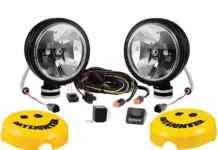By Lilla Laczo
These more or less tiny devices that now come in all sorts of form and track certain aspects of your workout have had a massive impact on the way we think about health & fitness today. With wearables, tracking has entered a new ear where data has no space, time, or any kind of limits.
You don’t have to rely on your personal trainer or other professional assistance anymore. With these simple and easy to use gadgets you can track your own physical activity all day every day.
Wearables are simply defined as “electronic technologies or computers that are incorporated into items of clothing and accessories which can comfortably be worn on the body.”
While we can differentiate between various wearable subgroups, they all share the same main goal. Which is allowing individuals to access advanced technologies in an easy, portable and hands-free way.
One of the wearable groups, the one that we are mainly interested in, is fitness trackers. They scan, sense, and track particular aspects of your workouts, movements and all sorts of physical activity. Then they analyze the data and provide you with easily accessible and understandable feedback.
Wearable fitness trackers have affected a number of aspects of our physical activity. While most of these impacts are clearly positive, you might occasionally hear some skeptical comments too. And to be completely honest, if you dig deep enough there might be a negative side as well.
PROS OF WEARABLES
- Wearable fitness trackers provide you with real-time data that you were not able to access before. Let it be heart rate, calories burnt, pace, and distance of your run, all types of data will be a beneficial piece of information. Information that gives meaningful insight into your current and past performance and helps to guide your workouts in the right way.
- Wearables, like the Sensoria socks & anklet or the Athos apparel, track your technique as well. Once all the necessary data is collected and analyzed, you get access to accurate and easily understandable feedback at the tip of your fingerprints. So thanks to these fitness trackers, you’re able to improve your technique without a professional trainer.
- Besides the fitness side of the story, these wearables are also able to reveal useful details about your general health and wellbeing. With basic features, like the HR monitor, step counter, and sleep tracker, you get to see how you’re actually doing in your day to day life.
- So all in all wearable fitness trackers have moved your everyday health & fitness journey to a more data-driven direction, which has been proven to have a positive impact on our health & fitness by several studies
CONS OF WEARABLES
- However this advantage of being data-driven is something others might actually see as a disadvantage of wearables. The reason behind it is simple. Constantly looking at numbers and checking you performance can become compulsive.
- Working on your performance based on meaningful metrics is fine up to a certain level. But once the rivalry with others or even with your own self turns into an obsessive habit, it can become unhealthy. Therefore, wearable fitness trackers are sometimes accused of making you push too hard and taking away the fun aspect of your workouts.
–
The market for wearable smart devices keeps growing. From Fitbit to brain-sensing headband, technology evolves to become smarter every day. Therefore, it is a legit assumption that it’s going to play a huge role in the future of the fitness industry. I personally own an iWatch, what it does for me the most is motivating me to move. This mental encouragement is often the first step in having an active lifestyle.




